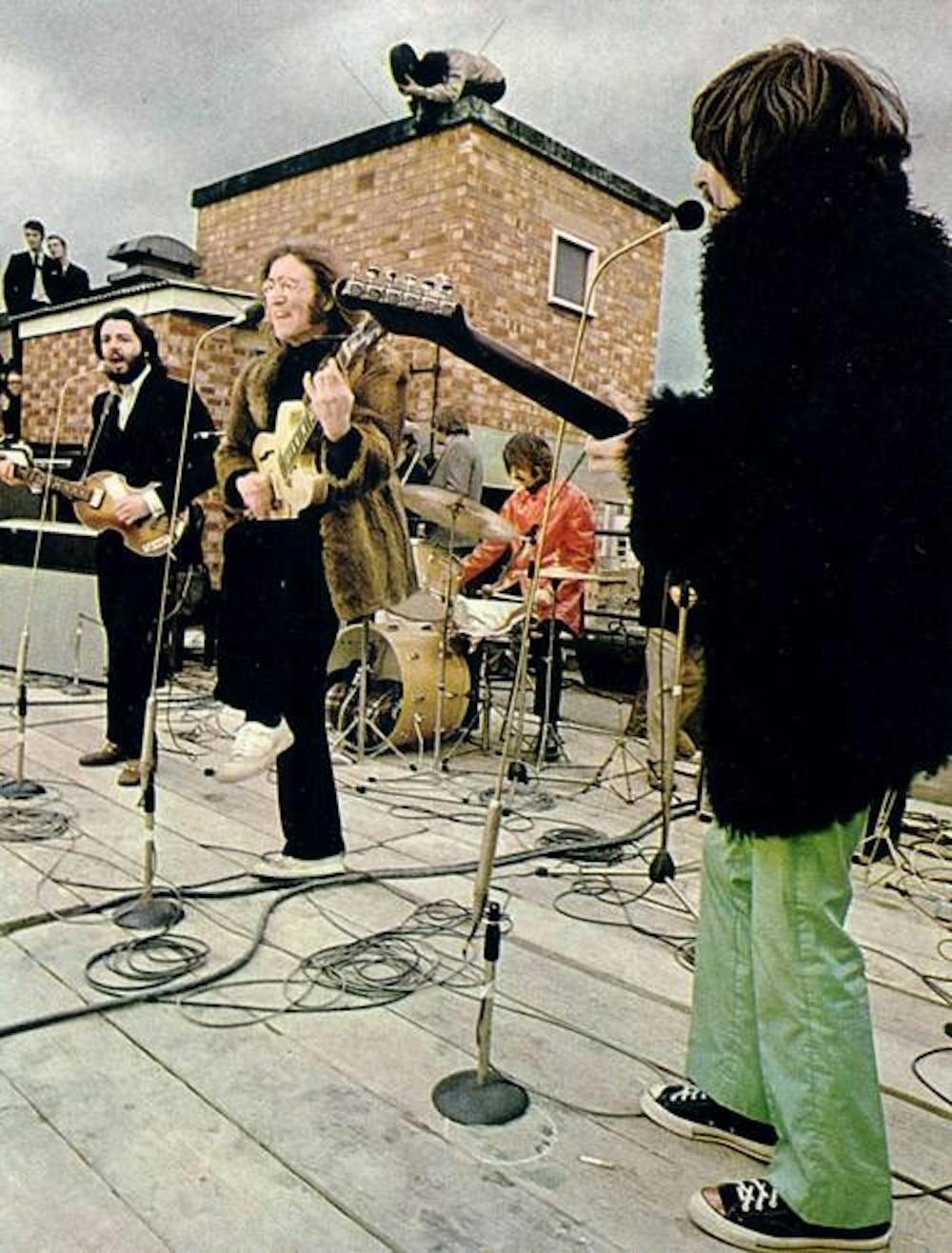
This is my last issue at The Cluster, meaning that my long and rambling column is finally at its end. All three of my readers must be disappointed and heartbroken. And so am I. I’ve spent the last four years working at The Cluster, from its first issue my freshman year right up until this one.
And in my time here I’ve put in a lot of work to make The Cluster the best college newspaper it can be. I’m more proud of it than anything else I’ve ever done. And throughout my time at the paper and my time at this column, I’ve trashed a good number of albums. But I think I’m getting over that. I don’t want to be negative. I don’t want to tear other people down without creating something of my own.
And so, in the spirit of my last column for my favorite paper, I’d like to talk about the single greatest piece of art humanity has ever produced. I’d like to talk about The Beatles’ Abbey Road.
I’m serious. I’ve examined the Mona Lisa. I’ve toured the great buildings of Europe. But I’ve never been more impressed by a work of art than Abbey Road. Released in 1969, it was the last recording The Beatles ever produced (Let It Be would be released the next year, but was recorded several months before Abbey Road), and it stands as the culmination of their artistic statements as a band and as individuals.
When it was recorded in early 1969, The Beatles were barely functioning as a cohesive unit. They had fallen to infighting, and their last recording session for Let It Be ended up with the album being shelved for the better part of two years. Despite their differences as individuals, however, the band came together and recorded what might just be the most impressive rock album of all time.
The album’s first half contains some a couple of the band’s most memorable moments, specifically “Come Together,” “Something,” “Oh! Darling,” and “Octopus’s Garden.” They’re all instantly memorable, building on the pop structure The Beatles had established over their career while at the same time expanding their sonic horizons.
The first side also contains John Lennon’s proto-drone rock composition “I Want You (She’s So Heavy)” and Paul McCartney’s irreverent and hilarious ditty “Maxwell’s Silver Hammer.” Abbey Road’s first half is an amazing collection of memorable pop singles that stand the test of time.
However, where Abbey Road really shines is its last half. The second side of the album doesn’t bother with creating the four-minute pop singles that the band had grown so used to in their career. Instead, they took a series of half-finished songs and strung them together in into a 16 minute epic.
The resulting medley is a masterpiece of pop craftsmanship, effortlessly blending melody, lyrics, and emotion. It runs the gamut from the slow piano ballad “Golden Slumbers” to the raucous guitar riffing of “Polythene Pam.” The songs flow together perfectly for the entire 16 minute period, but none of them go on too long to get boring. Artistically, it’s perfect.
Finally, the nine song suite comes to a head in “The End.” Throughout those two minutes, John, Paul, George, and Ringo say everything they possibly can about their careers. Each of the four takes their own solo in sequence (with this being the only drum solo Ringo Starr would ever play) before ending the song in the words, “And in the end, the love you take is equal to the love you make.”
The song wraps up every philosophical stance the band had taken over the years, even foreshadowing the anti-war activism John Lennon and his wife Yoko would become famous for soon after the record’s release. It’s the perfect place to end a band’s career, summing up everything they had to say in two beautiful minutes.
And in an amazing move, Abbey Road contains one of the first hidden tracks in the history of rock music. 40 seconds after “The End” encapsulates everything The Beatles had to say, the 14-second “Her Majesty.” It interrupts the serenity of the album’s end, but it’s beautiful in its own way. The McCartney-penned snippet expresses the beauty and pain of unrequited love with astounding clarity in less time than it takes to read this paragraph.
More importantly, though, it reminds us that nothing is ever over. Things keep going, despite our best efforts to conclude them. The Beatles kept going, in their own way, after Abbey Road was finished. They released another record, and every member of the band continued playing music for the rest of their lives. They weren’t going anywhere, and neither are we. “Her Majesty” lets us know that. It’s entirely perfect in that way.
Honestly, if humanity had to pick record of our civilization to send an alien species, it would be Abbey Road. There might be records I enjoy more than this one, but I don’t think humankind will ever produce another piece of music as cohesive, beautiful, and captivating as Abbey Road.
Eric Brown out.
Kill Your Idols





